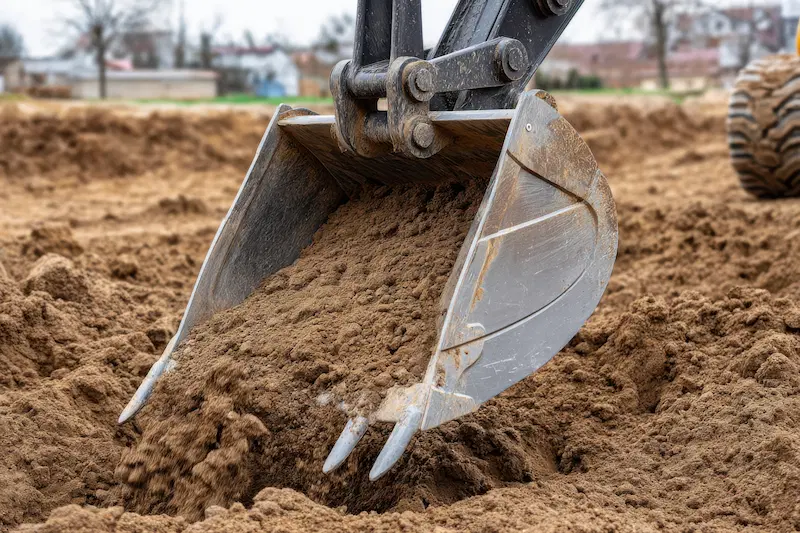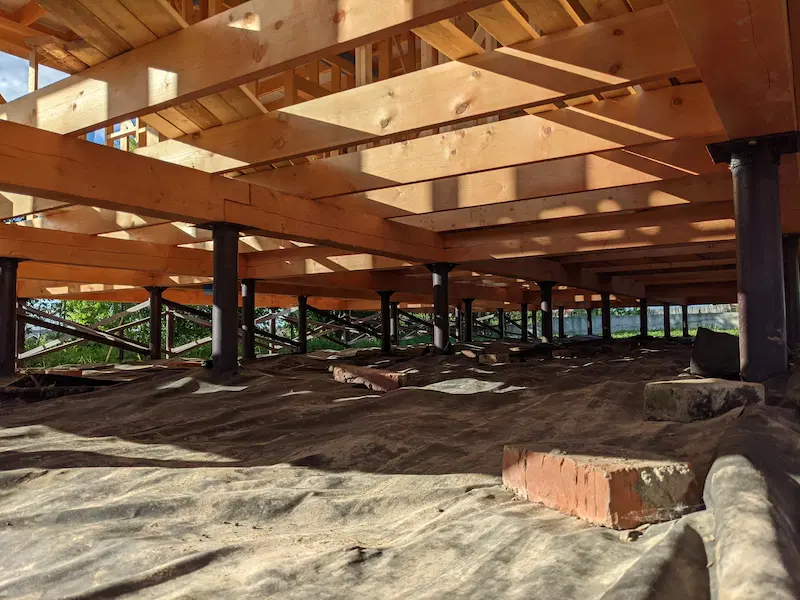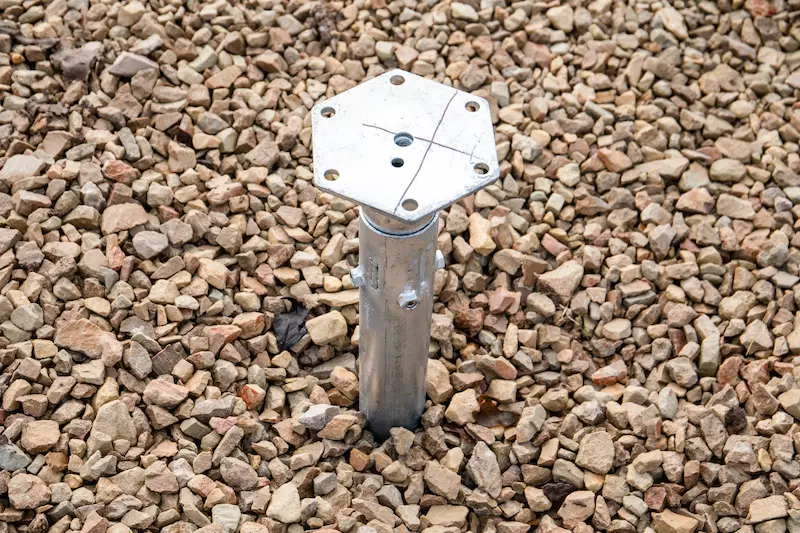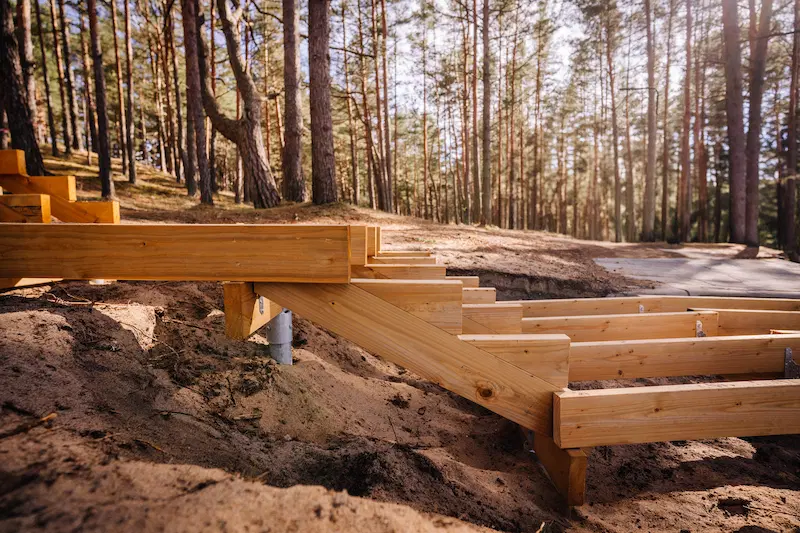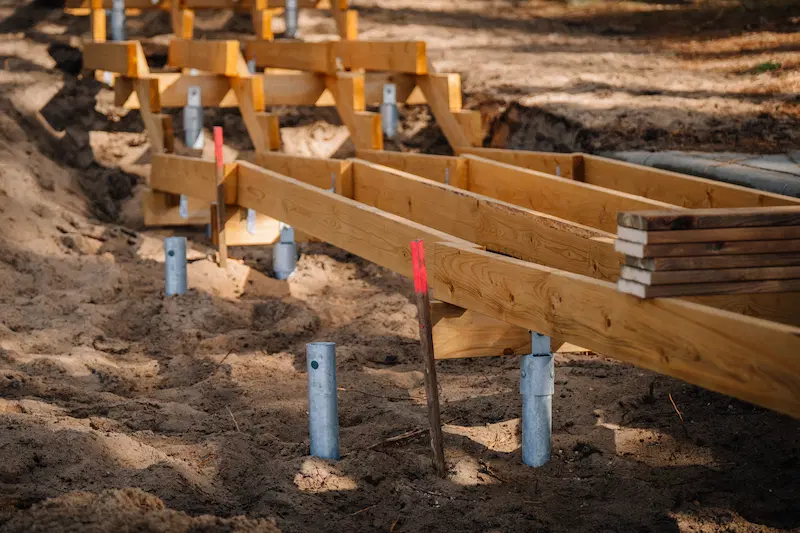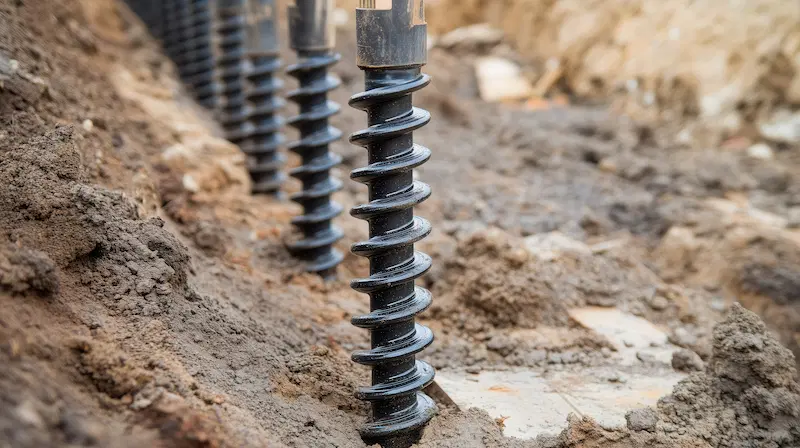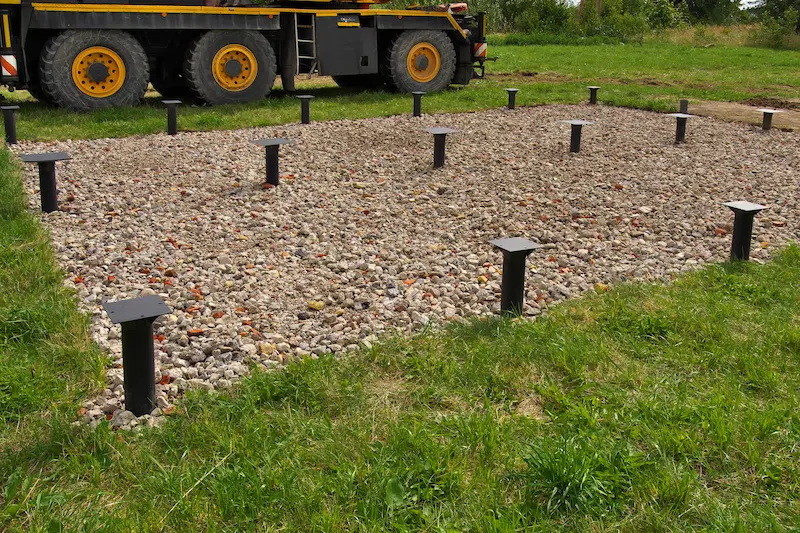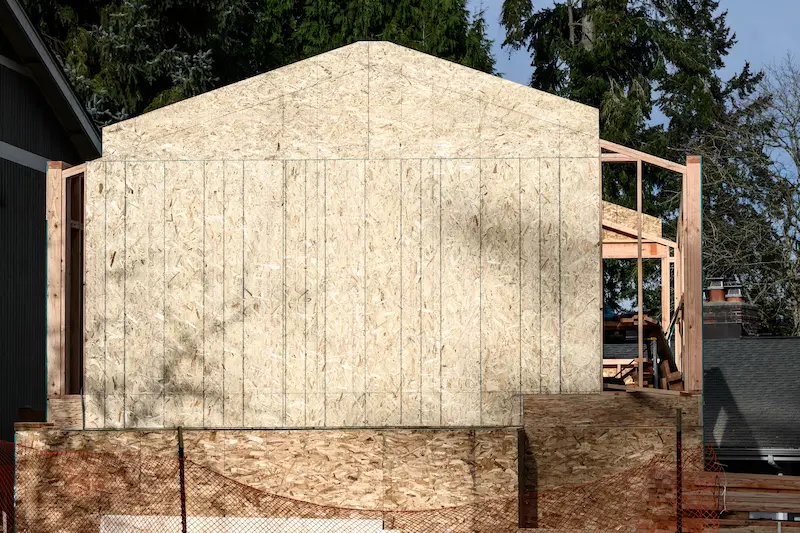When it comes to building or renovating your home, what goes underneath is as important as what goes above.
Whether you’re planning a home addition, a deck, or even a full foundation for a new build, there’s a practical and innovative option to traditional concrete footings that is now gaining popularity – helical and screw piles.
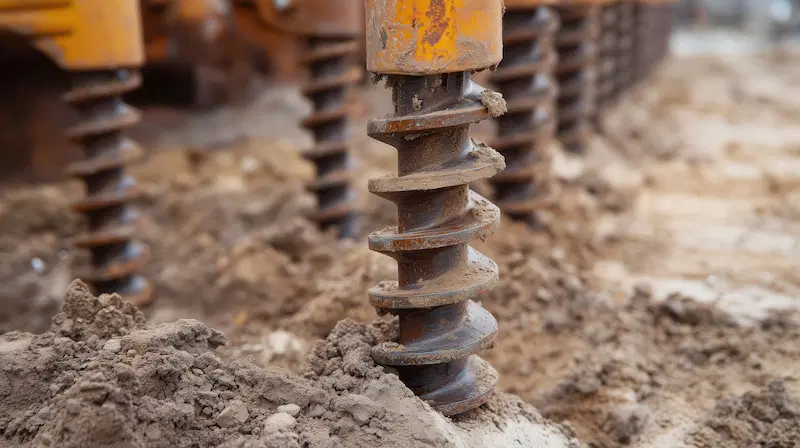
You have probably encountered these terms from professionals or read about them while researching your project. What exactly are helical piles or screw piles? Are they worth considering for your foundation?
As a homeowner, a crucial question to ask is: how much do they cost?
Let’s delve more into helical and screw pile foundations to know the good, the bad, and the cost, so you can make a well-informed decision for your home project.
To get accurate quotes based on your needs, you can also fill out the short online form on this page to receive FREE and NO-OBLIGATION quotes from our reliable partners.
What Are Helical & Screw Piles?
In essence, helical piles, also known as helical piers and screw piles, are large steel shafts with spiral blades that are screwed into the ground with the use of a hydraulic machine.
They create a stable base to support structures of different sizes including decks, home extensions, or full-sized houses.
Traditional concrete foundations require excavation, pouring, and curing whereas helical piles can be quickly installed with minimum disruption. They require less work and are highly effective for building a strong foundation.
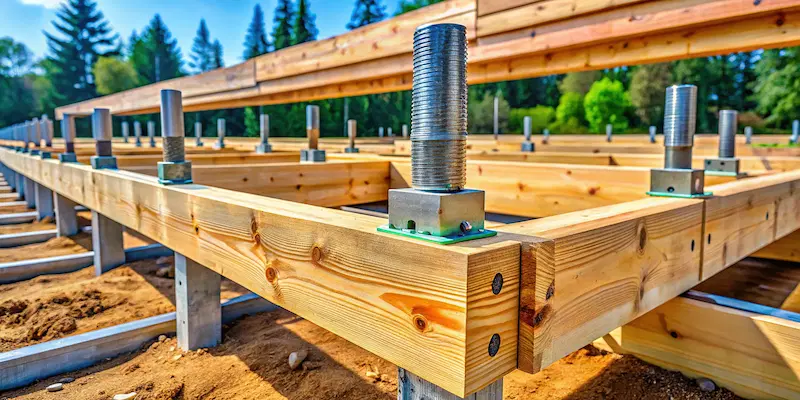
Reasons why homeowners are now Choosing Helical Piles
There are many things to love about screw piles and helical piles.
1. Fast Installation
Time, especially in construction, is money. Helical piles can usually be installed in just a day or two, so you can imagine how much money you can save from labour costs.
Once your screw piles are in, construction can start as there is no more waiting for concrete to cure.
2. Minimal Excavation
Traditional concrete foundations require digging large holes and soil removal, thus creating a huge mess. On the other hand, helical piles are simply drilled into the ground. This means your yard will have less mess, no heavy excavation equipment, and faster job completion.
3. All-Year Round Installation
Whether it is sunny, rainy, or snowy, helical piles can be installed. This means they can be used in any weather, even in areas with unpredictable seasons.
4. Great for Poor Soil Conditions
Homes located in areas with clay, sand, or soft soil that use traditional footings may see shifting foundations over time. Helical piles are designed to penetrate deep into stable soil layers to give your structure the stability it needs over the long term.
5. Environmentally Friendly
Since minimal soil disturbance is required to install helical piles, they are more eco-friendly as a foundation option. They can also be removed and recycled when needed, such as if you want to relocate your structure in the future.
6. Immediate Load-Bearing Capacity
An important advantage of helical piles is that once they are in the ground, they can immediately support weight. This means your construction can start right away.
7. Precision Engineering
Pile installation can be monitored for depth and torque, providing engineers with real-time data to make sure the foundation complies with structural requirements. This takes the guesswork out since everything is measured and verified.
The Cons of Helical Piles to Consider
No system is perfect, and helical piles are no exception. While they provide numerous advantages, there are a few cons for you to think about.
1. Higher Initial Costs
Screw piles can be more expensive than concrete foundations due to the required materials and specialized equipment. However, the total cost can be lower or even out when you consider faster installation and the benefits of no curing required.
2. Not Ideal for Rocky Terrain
Does your property sit on bedrock or with lots of large stones? Installation on this kind of terrain can be tricky. The auger blades must dig into the soil and not break through rock. A geotechnical assessment may be required in such cases to see if other alternatives are needed.
3. Specialized Installation Required
Screw piles installation requires certified professionals to do the work – not just any contractor. You will need to hire professionals with the experience and proper equipment. Especially in rural areas, this can leave you with only a few contractor choices.
If the soil is soft or unstable, extension bars can be added to reach deeper and more stable layer. Even in challenging conditions, helical piles can be effective in providing a stable foundation.
We have outlined the pros and cons of helical piles and screw piles so you can weigh them and make the right choice for your project.
If you need help with accurate price estimates, connect with our reliable partners by filling out our short online form.
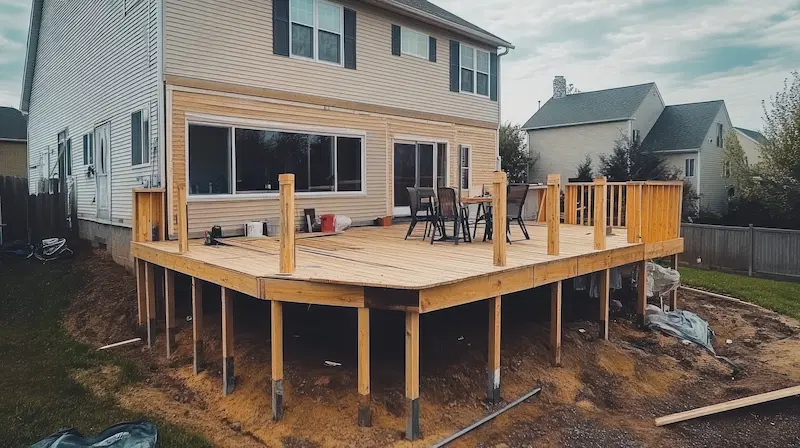
How Much Do Helical & Screw Piles Cost?
We are now ready to talk numbers. The cost of installing helical piles depends on a few critical factors:
- Pile size and load capacity
- Soil conditions
- Depth required
- Location and access to the site
- Number of piles needed
- Labour rates in your area
Prices vary based on region, soil conditions, and project size. On average, Canadian homeowners can expect to pay:
Per Pile Installed:
$300 – $600 CAD for standard home use
$600 – $900 CAD for heavy-load or deeper piles
Note: The above prices include labour, materials, and installation. If the property has difficult access conditions, the price is likely to increase.
Here’s a short breakdown per project type to give you a better idea of how much it costs to install helical piles.
| Type of Project | Estimated Cost |
| Deck (4-6 piles) | $1,200 – $5,000 |
| Large Deck (8-10 piles) | $2,500 – $6,000 |
| Sunroom/Foundation | $3,000 – $8,500 |
| Home Addition (10-20 piles) | $6,000 – $10,000 |
| Whole house foundation | $10,000 – $30,000++ |
Although at first glance, these prices may seem high, keep in mind that helical piles can help you save cash on soil removal, excavation, concrete materials, and labour. In most cases, the cost to install helical piles can end up being cheaper in the long run.
Regional Pricing Overview (Per Province)
Province | Average Cost Per Pile (with Installation)
|
Ontario | $350 – $700 |
Quebec | $300 – $550 |
Alberta | $300 – $600 |
British Columbia |
$400 – $800 |
Manitoba/Saskatoon | $250 – $500 |
Atlantic Canada | $300 – $600 |
Ask a certified contractor about helical piles installation for your project. You could save a lot of time and money by turning to trustworthy professionals.
Fill out our short online form today to get accurate estimates from experienced professionals in our network.
What to Expect with Helical Pile Foundations
One of the biggest questions in the minds of homeowners is how long helical pile foundations last.
Since helical piles are made of galvanized steel, they are resistant to rust, corrosion, and damage from the environment.
Helical pile foundations last 50 years or more with very little maintenance. They often last longer than concrete footings.
Unlike concrete that can crack, chip, or shift due to freeze-thaw cycles or soil movement, helical piles are designed to move minimally and absorb ground forces. This means fewer cracks, less settling, and less need for costly repairs down the line.
While very little maintenance is required, professional inspection every 5 to 10 years is also recommended. This is a good way to catch signs of corrosion or movement before they cause serious issues.
Is it possible to install helical piles DIY?
While we have said that helical piles are faster to install, don’t get carried away and start planning to DIY your installation.
Installing helical piles requires specialized training and equipment. It is best to hire a certified contractor to ensure proper installation and avoid major problems in the future that could put your structure at risk.
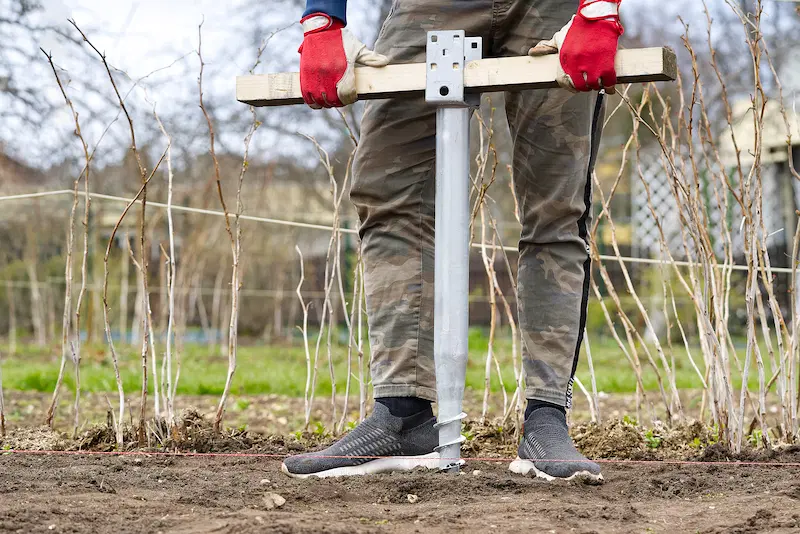
For anything that supports significant weight such as home additions, sunrooms, or whole homes, it is not advisable to DIY the installation of helical piles.
Professional-grade helical piles need:
- Accurate torque and depth readings to ensure load-bearing capacity
- Hydraulic drive heads mounted to skid steers or mini-excavators
- Compliance with local building codes and engineering approval
If your project involves supporting anything more than a fence, involved unstable soil, requires a permit or code compliance, hire a certified helical pile installer.
Despite the higher upfront cost, you can have peace of mind in the long run and enjoy safety, performance, and warranties.
Comparison of Helical Piles vs. Concrete Footings
You may be begging the question “Why not just use concrete like most other people?”
To answer this question, refer to the quick comparison below of helical piles vs. concrete footings.
| Characteristic | Helical Piles | Concrete Footings |
| Installation Time | 1-2 days with no curing time required | 3-7 days including curing time |
| Seasonal Flexibility | Can be installed in all seasons | Extreme cold, frost, or rain will cause delays |
| Soil Adaptability | Excellent for poor or unstable soil conditions | Could crack or shift in soft soil |
| Required excavation | Minimal | Needs soil removal and digging |
| Load Capacity | Measurable and engineered | Depends on the quality of concrete and site preparation |
| Cost | Higher upfront but lower in the long term | Lower upfront but higher due to delays |
| Removability | Easy to relocate or remove | Permanent |
Helical piles are often more reliable foundation, especially in imperfect conditions. While concrete is still a strong alternative, many homeowners are choosing helical piles for long-term benefits and savings.
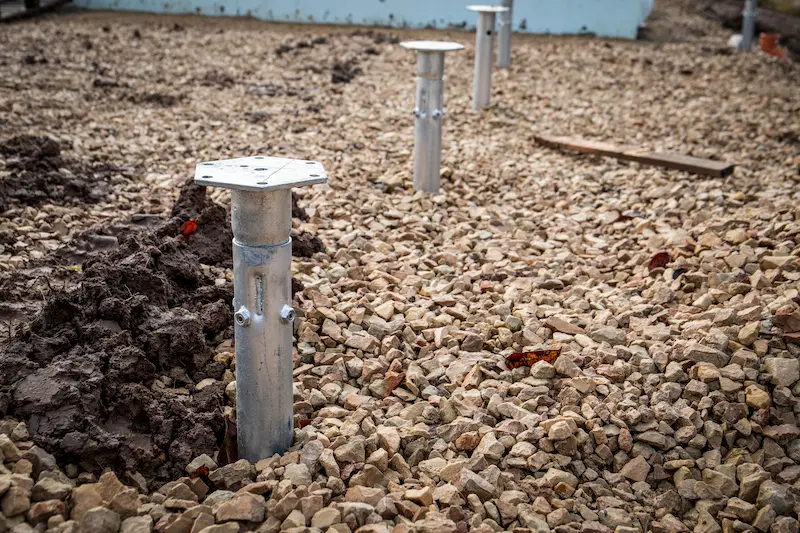
Build Smart from the Ground up
Whether you are planning a new deck, a home extension, or even a whole home construction, your foundation matters and how you install it.
Helical piles and screw piles offer homeowners with a cleaner, more practical, and efficient alternative to concrete.
When you want a dependable foundation, look for certified local helical pile contractors to get a quote and assessment of your project.
Please keep in mind that good homes don’t begin with walls – they begin with what is underneath so build smart from the ground up.
Step-by-Step on Helical Pile Foundation Installation
One of the biggest benefits of helical piles is its quick, clean, and accurate installation process without the invasive digging, and curing time. Here’s what a usual home installation looks like:
1. Site Inspection
A qualified contractor will assess the soil, load requirements, and site accessibility. If necessary, an engineer will design the layout and specifications.
2. Marking & Positioning
The installers will mark where the piles will be installed, generally at structural load points such as beam supports.
3. Screwing the Piles
With a hydraulic machine mounted on a mini-excavator or skid steer, the installers will twist the helical piles into the ground until they reach a stable layer. They will measure the depth and take torque readings to verify the load-bearing capacity.
4. Trimming to Height
When the piles are installed, they are trimmed to match the height requirements of the project.
5. Attaching Brackets
Caps or steel brackets are bolted to support the beams, posts, and framing elements.
6. Construction
Construction can begin immediately after the piles are installed, even on the same day, since no curing time is necessary.
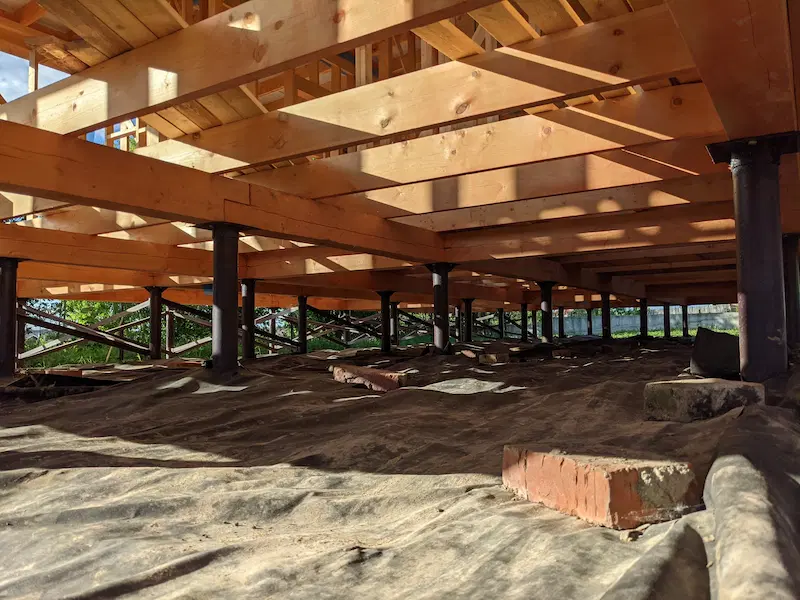
It is easy to see the significant advantages of using helical piles over concrete for any home construction project needing a foundation.
Consult a foundation expert from our network of qualified contractors to ensure a successful project.
Where to Find Certified Helical Pile Installers
We mentioned earlier that you need to hire certified helical pile installers to ensure your foundation is safe, durable, and code-compliant.
Screw piles and helical piles have their unique strengths and are suitable to specific conditions. Choosing the best foundation depends on the site conditions, your type and size of project, and budget.
We can help you find the best helical pile installers near you from our vast network of partner contractors.
Fill out the online form below to receive competitive and no-obligation offers to compare to save time and money.
